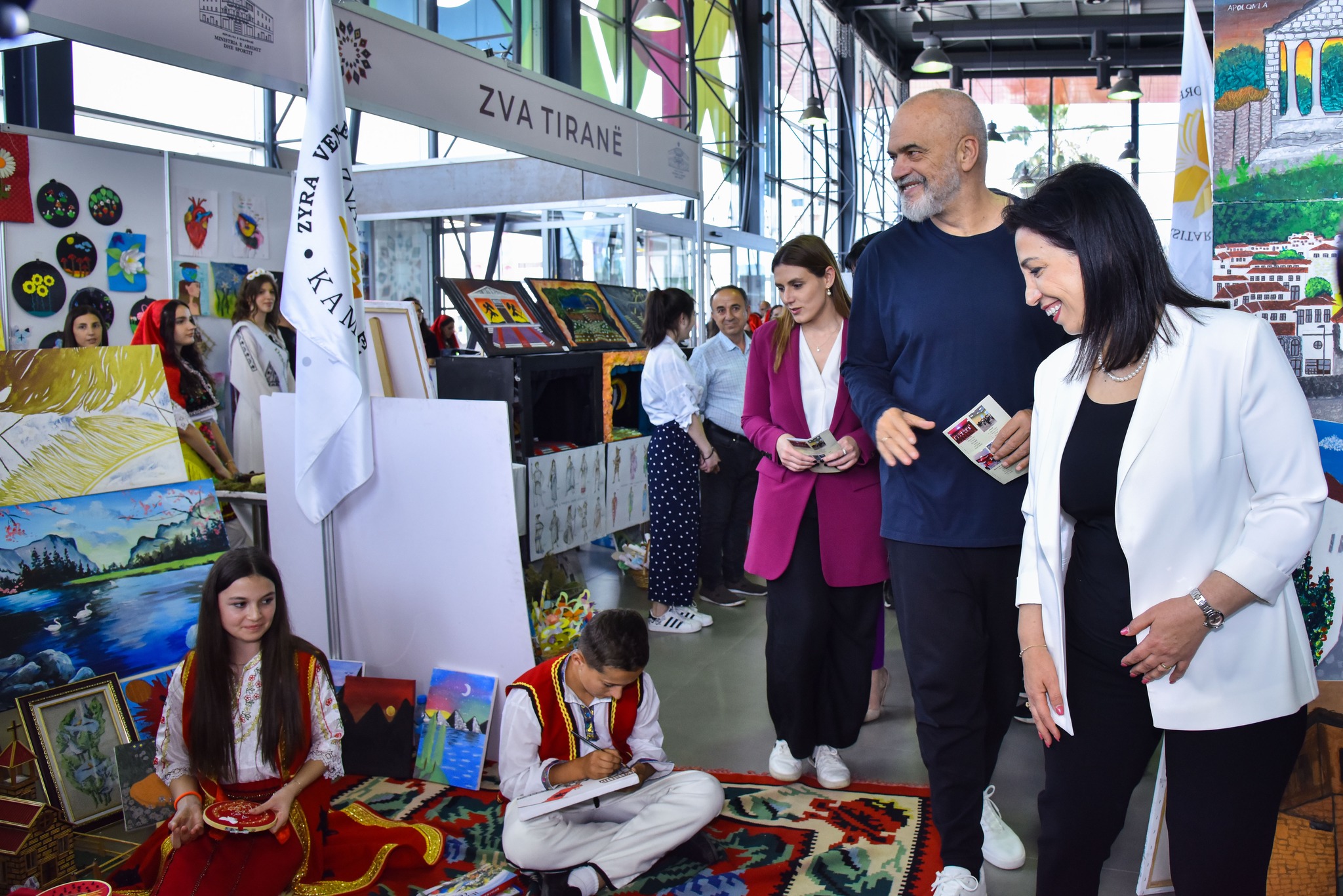New medical plants collection and processing centre in Lazarat, fresh opportunity to tap into area’s natural wealth
A new centre for collection and medical plants processing in the village of Lazarat, southern Albanian municipality of Gjirokaster, has become operational just a few days ago, a project supported by local government authorities and which employs a number of local young professionals, including creation of the United Agricultural Association with participation of an initial group of more than 30 local farmers.
From a former dilapidated school building and a public ground of no use for local residents, thanks to the municipal investment and thanks to the collaboration with local farmers, it was transformed into a centre featuring state-of-the-art technology for collection and processing of the medicinal plants. Lazarat and the surrounding areas are a treasure trove of the medicinal plants and herbs.
Prime Minister Edi Rama visited the new medicinal plants collection and processing centre to see firsthand this important investment.
“This is the new medicinal plants collection facility, once a ruined school building that served as such for a very short period of time, built as a regrettable public investment in 2009 and to be abandoned just a few years later. It is totally a ruined and abandoned public space without a plan and a project that turned out to be totally useless for the Lazarat residents themselves too. For over two years now, the Municipality of Gjirokaster, in collaboration with local residents and farmers in Lazarat, who are very hardworking people, agreed and contributed to the project designed to collect and process a tremendous natural wealth of Lazarat and the surrounding areas that are extremely rich in medical plants and aromatic herbs. The demand for such products is very high and this centre for medicinal plants collection and processing was built through a fund provided by the municipality and local donors. The centre was inaugurated two days ago. The farmers association has also been founded, with the majority of participating farmers being from Lazarat, as well as from other villages, who are involved in collection and processing of the medicinal plants,” the Minister of Tourism and Environment Mirela Kumbaro said.
In the meantime, a local entrepreneur, commending local government authorities for providing due funding and assistance to build this centre, said that area’s richness in a wide range and variety of medicinal plants will generate stronger local economy and employment.
“It is worth noting the fact that based on the findings of a feasibility study, the region of Gjirokaster is home to around 400 various species of medicinal plants. Albania is perhaps one of the richest countries in medicinal plants and herbs in the world and a resource-rich country. We wanted the centre to work best in economic and employment terms, but we are also seeking to include it in the itinerary of aromatic and scented journeys for the tourists to visit all the plantations due to be created in the area,” she said.
On his part, Prime Minister Edi Rama praised local government authorities and farmers for their work on construction of the centre, underlining that a light sustainable industry can be built through the right support to generate income for all local residents. “We need to strengthen this enterprise at any cost, provide assistance so that others can see and join in order to build a sustainable light industry to generate income for all local residents in the area.”



